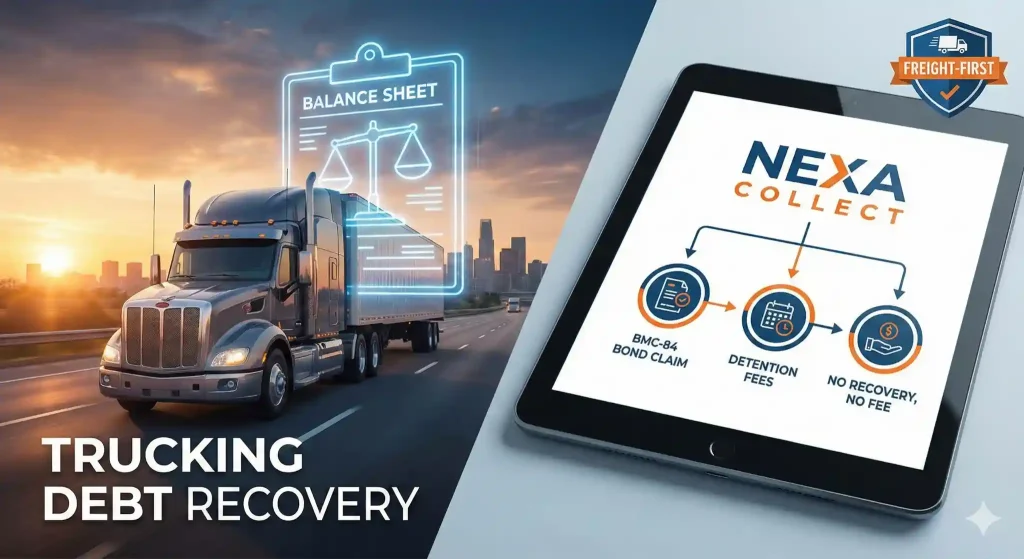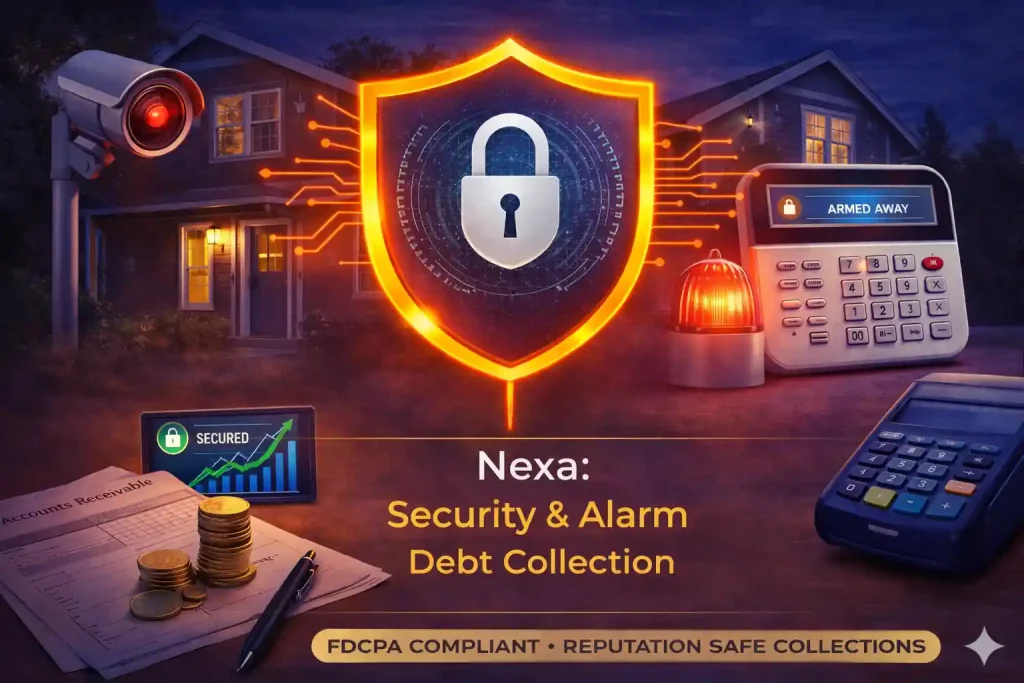Trucking Debt Recovery: Don’t Let Brokers Fuel Their Business with Your Cash Flow
In trucking, your “assets” are moving at 70 MPH, but your cash flow is often stuck in a broker’s “processing” pile. With diesel prices and insurance premiums at record highs in 2026, you cannot afford to be an interest-free bank for your shippers or brokers. Whether it’s a disputed detention fee or a “ghost” broker who stopped answering the phone, every unpaid mile is a direct hit to your survival.
Nexa provides a specialized, high-velocity recovery system that understands the 90-Day Bond Cliff. We don’t just “ask” for payment; we leverage the BMC-84 Broker Bond to ensure your invoice is paid first.
Nexa provides 100% reputation-safe, equipped with all 50-state collections license, offering free credit reporting, free litigation, free bankruptcy scrubs, and zero onboarding fees. Secure – SOC 2 Type II & HIPAA compliant. Over 2,000 online reviews rate us 4.85 out of 5.
Stop Being a Free Bank. Get Paid Now.
The Trucking Reality: Numbers That Matter
-
$75,000: The federal limit of a broker’s bond. If you aren’t the first carrier to file a claim, that money will be gone before you even get in line.
-
18.5%: The average increase in operating costs for carriers in 2025/2026. Unpaid debt is no longer an “annoyance”—it’s a bankruptcy risk.
-
60 Days: The point at which the probability of recovering freight debt drops by 40%.
-
$0: The amount we charge for Step 1 Fixed-Fee white-label demands. You keep 100% of the recovery.
The Nexa “Freight-First” 4-Step Ladder
-
Step 1: The “Bond Warning” (Fixed Fee). Best for accounts 30–45 days past due. We send professional notices that signal a formal intent to file against their bond. The broker pays you directly.
-
Steps 2–4: Full Mediation & Bond Filing (Contingency). If they stay silent, we initiate the BMC-84 claim and handle the documentation hurdles (Rate Cons, BOLs, PODs). No Recovery = No Fee.
Why Carriers Choose Nexa
-
Lien & Bond Expertise: We know how to navigate the FMCSA SAFER system to identify the exact surety company holding the broker’s bond.
-
Accessorial Recovery: We don’t just chase the base rate. We fight for Detention, Layover, and Lumper fees that brokers love to “forget.”
-
Fraud Detection: We identify “Double-Brokering” scams early, helping you target the actual shipper (the “beneficial owner” of the freight) to secure payment legally.
Recent Freight Recoveries
-
An Oglethorpe Transport : Recovered $22,000 in “short-paid” invoices from a regional broker who was disputing delivery times.
-
Mid-Sized Fleet (Reefer): Secured $84,000 from a broker’s bond 14 days before the broker filed for bankruptcy.
-
Owner-Operator: Recovered $3,200 in unpaid detention and fuel surcharges that the shipper had previously denied.
Frequently Asked Questions (FAQ)
1. Can you collect if I don’t have a signed POD?
Yes. While a POD is “gold,” we can use GPS logs, gate receipts, and email chains to build a secondary proof of delivery for mediation.
2. What if the broker’s bond is already maxed out?
We pivot to the Shipper. Under federal law, the shipper can often be held liable for the freight charges if the broker they hired fails to pay the carrier.



